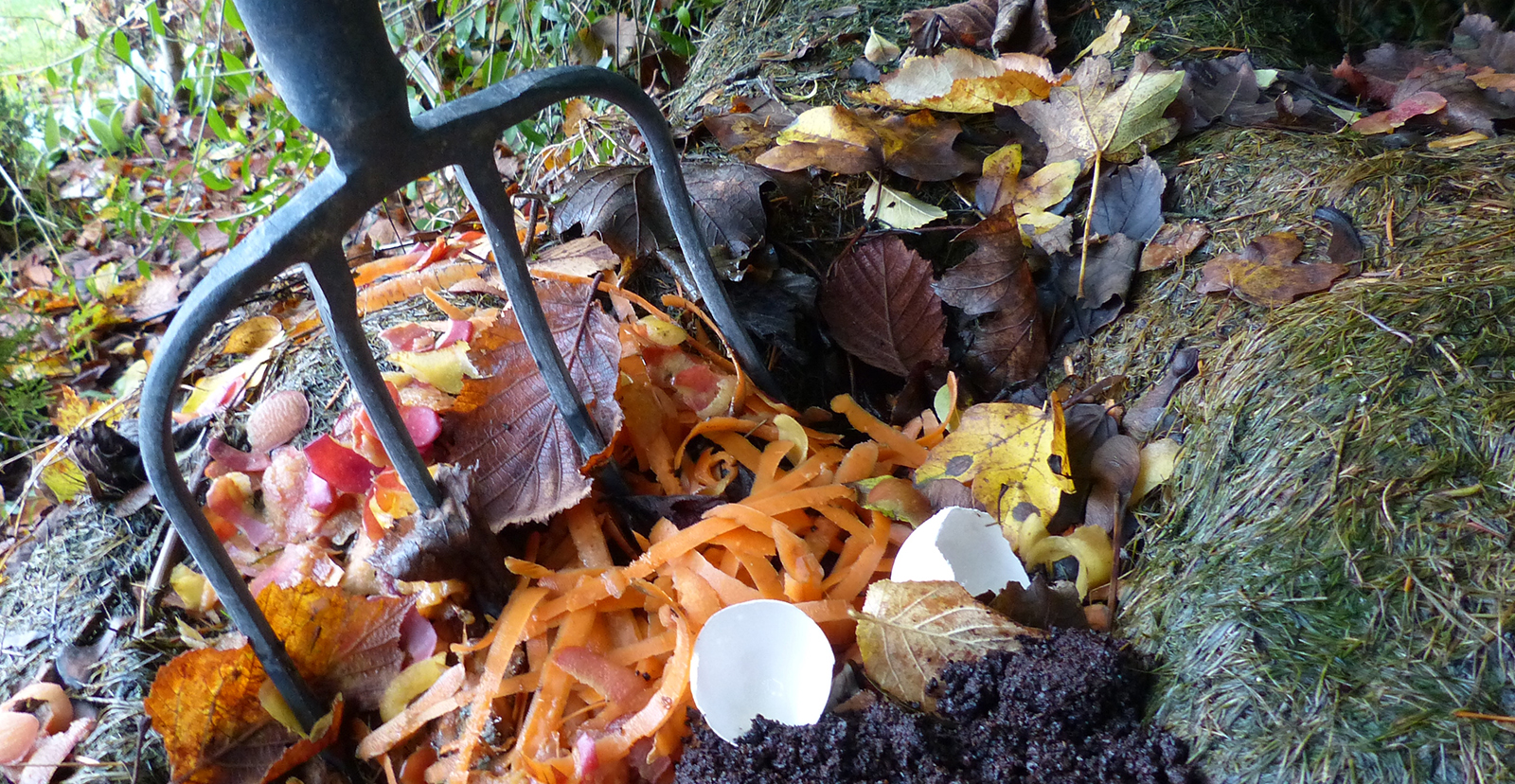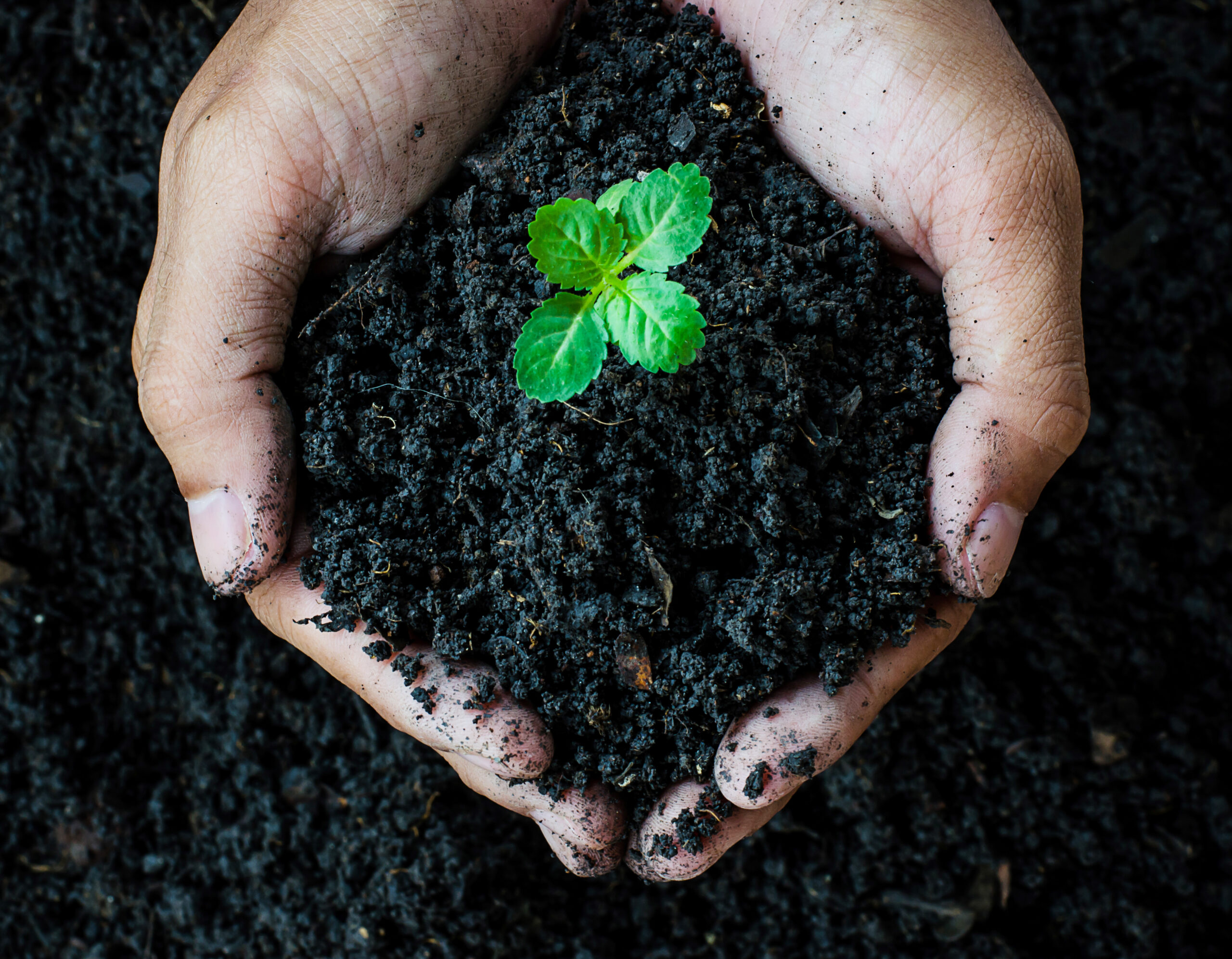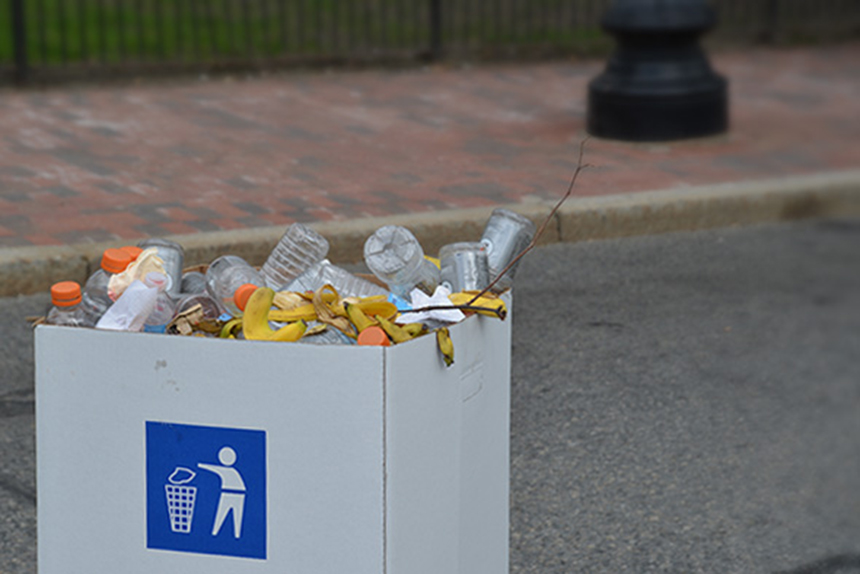Bills Would Boost State Composting Infrastructure
Food scrap is getting thrown away, wasting opportunities to reduce greenhouse gas emissions
April 22, 2024
PROVIDENCE — Lawmakers are considering taking advantage of an opportunity to increase the capacity of the Central Landfill in Johnston by boosting the state’s nearly non-existent composting resources.
Legislation (H7856 and S2753) introduced in both chambers of the General Assembly this year by Rep. Terri Cortvriend, D-Portsmouth, and Sen. Bridget Valverde, D-North Kingstown, would add an extra $2-per-ton surcharge to the existing tipping fees charged by the Rhode Island Resource Recovery Corporation (RIRRC) for sending waste to the state landfill.
The bills propose splitting the proceeds from the surcharge 50-50, with half going toward municipalities to improve their own composting education, resources, collection, and facilities and the other half going toward competitive grants for the composting sector.
In a Senate Finance Committee hearing earlier this month, advocates pitched the plan as a money-saver for cities and towns. Josh Daly, associate director at the Rhode Island Food Policy Council, told lawmakers municipalities spend $21 million annually to send their trash to the landfill, and at least $7 million worth of that trash is organic waste that could be composted.
“We have a choice,” said Daly, gesturing toward trash bags and compost bags he displayed on the witness table during his testimony. “We can either have waste, or wealth.”
Daly said the surcharge would essentially pay for itself with an estimated 5% to 7% reduction in organic waste, and a 2% reduction of all waste sent to the Central Landfill. With the landfill estimated to reach its maximum capacity within the next 15 years, diverting compostable waste would extend the landfill’s lifetime beyond what has been projected by RIRRC.
Meanwhile, the state’s current recycling rate is unlikely to extend the landfill’s life. Last year’s municipal recycling report from RIRRC shows only 15 of Rhode Island’s 39 municipalities achieved the 35% mandatory recycling rate set by state law.
Compostable materials, including food scrap, newspaper and cardboard, and leaf and yard debris, make up about a third of the total trash sent to the landfill every year, about 100,000 tons total, according to a 2015 waste characterization study by RIRRC. But only a specific segment of that waste is composted by the state.
“Resource Recovery’s primary composting focus is on leaf and yard waste,” said Jared Rhodes, director of policy and programs for RIRRC. “Each year the corporation composts roughly 40,000 tons of leaf and yard waste utilizing a window-based process.”
Food scrap thrown away by Rhode Islanders is getting buried in Johnston, with the state wasting key opportunities to improve soil health, reduce greenhouse gas emissions, and save money on tipping fees. Uncomposted food scrap is the biggest source of methane — a greenhouse gas five times better at warming the planet than carbon dioxide — after natural gas infrastructure leaks.
Rhodes said RIRRC promotes do-it-yourself composting efforts, offers compost bins for sale to state residents, and maintains a list of around 14 municipalities that offer composting alternatives through their public works departments. The corporation also offers municipal grants that towns can apply for to boost composting.
The corporation has studied food waste collection in the past. RIRRC hired outside contractor DSM Environmental Services Inc., which released a study in 2022 outlining the different scenarios under which the corporation might start separating food waste from the overall waste stream that feeds the landfill.
The study split food collection into five possible scenarios: adding food waste collection to existing municipal collection programs; splitting truck collection between trash and recycling pickup every other week and food waste every week; rotating trash collection without splitting trucks; bagging food waste in specifically colored trash bags that are put into normal collection; and mixing trash and food waste into a single stream, with the assumption RIRRC would construct a processing system to separate it.
But any change to current practices comes at a big cost. DSM Environmental pegged the lowest cost alternatives between $17 million and $21 million annually, an average cost of $52 extra per household. The study also said the reduction of waste sent to the landfill, estimated as 5% to 7%, as too low to be worth considering.
“It is DSM’s opinion that the high cost associated with the alternative food waste collection scenarios compared to the relatively low impact on landfill volume and GHG emissions makes implementation of these scenarios a relatively unattractive alternative for RIRRC or Rhode Island municipalities and households,” DSM Environmental noted in its final report.
The emissions calculated in the report were derived from estimates of emissions from collection and transportation of food waste — i.e., emissions from trucks and other vehicles used to transport waste. It did not account for methane emissions from food waste, although DSM did suggest anaerobic digestion as a more feasible alternative than composting.
H7856 and S2753 were held in committee for further study.
Categories
Join the Discussion
View CommentsRecent Comments
Leave a Reply
Your support keeps our reporters on the environmental beat.
Reader support is at the core of our nonprofit news model. Together, we can keep the environment in the headlines.
We use cookies to improve your experience and deliver personalized content. View Cookie Settings




DSM has no idea what they are talking about, knowing nothing about compost. All they seem to think about is big technology solutions rather than an all of the above approach which is the right one for RI. Anaerobic Digesters will never be a complete solution, and contribute little to soil health and food security.